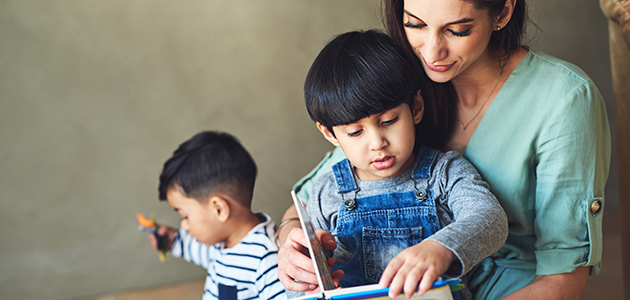We’re now more than halfway through a year that no one could have predicted would turn out the way it has—and you’ve made it! It might not seem like it, but you’re doing great. The sacrifices you’ve made to keep yourself and loved ones safe, the way you’ve supported others by doing what you can to safely help those around you in need, and your determination to push through every hard day in the hopes that the next one would be a little better shows exactly what you’re made of.
But of course it’s been incredibly difficult and stressful. In fact, you may not feel like you’re doing great at all. That’s because while we’re busy trying to manage this new reality the best we can, we’re also all grieving the life we once knew—those easy days when even the simple joy of going out for a cup of coffee with a friend was allowed.
According to an article in Harvard Business Review,1 these feelings of grief are to be expected. We’re grieving the loss of normalcy due to the intrusion of a virus that has changed all the rules we used to know. But there is also something called “anticipatory grief,” which is the anxiety we feel when we think about the uncertainty of the future. The loss of safety that we once knew and counted on can be very stressful for humans who like to feel in control as much as possible.
So if you’re not feeling great, you’re not alone. But the good news is that humans are resilient and pretty clever when it comes to finding ways to adapt. We’ve seen it in the creative ways people have found to safely stay in touch with loved ones, and to lift up those around them with things like supportive banners, sidewalk art, and painted stones scattered through neighborhoods.
Just remember that support is out there if you need it. Reach out to family, friends, a spiritual advisor, or your family physician if you find that you are unable to cope with the anxiety you’re feeling. There is no shame in needing help. None of us have ever been through a pandemic, so there isn’t a handy manual to reference when you find yourself really struggling to figure out how to manage your fear and feelings of isolation.
Visit the American Psychological Association and Psychology Today for more exploration of the collective grief we’re all experiencing, and what we may be able to do to heal.
Early on there were suggestions that people should take the lockdown as an opportunity to work on personal projects and hobbies, organize and renovate their homes, take courses and learn new skills, and be as productive as possible with all the “free time” they were allegedly going to have.
It’s great if you were able to take whatever precious mental and physical energy you had and turn it into something productive. But it’s also perfectly fine if all you’ve been able to do is simply survive. In fact, managing to do just the bare minimum in the midst of a pandemic is actually pretty amazing considering the emotional toll it’s taken.
So even if you’ve only washed your hair once in the last week, you had cereal for dinner last night, and you haven’t touched that scrapbook you started back in 1998 and vowed to finished, you really are doing great.
417957E CAN/US 08/20




